In Translation | "The Glass Marble" by Fumiko Okada
One of manga's great artists, in English for the first time.
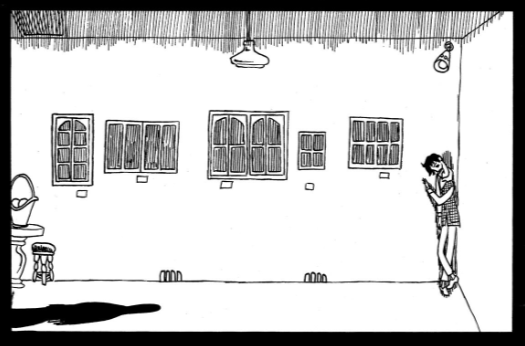
And so we arrive to the end of my beloved Manga March. After this I'm going to take a few weeks off thanks to my job flaring up in busyness and then we'll be heading back to the warm embrace of weirdly personal essays about obscure Japanese things. But that doesn't mean the translation train is over! I've still got several EXTREMELY cool titles I'm jazzed to get to you all. I also may or may not be in the process of my now yearly tradition of subbing a movie to boot.
For this last one, we have a real doozy: the first (as far as I can tell) English translation of a major manga artist. I'll spare you the whole biography for now because today's artist, Fumiko Okada, deserves an entire post about her life and career. Her stories are opaque and abstract, dense and literary. Characters speak in soliloquies and exist in surreal symbolist landscapes. Questions exist, not to be answered but to be felt. Her art shifts and changes with each story but always carry a sense of watching statues and paintings. She has, in other words, become one of my favorite manga artists these past few weeks.
Today's story, "The Glass Marble" serves as perfect proof of all of this. Published when she was a third year in high school and winning COM's Rookie Award in their January 1968 issue. This story is strange and beautiful and deeply evocative, reminding me of the work of Kenji Miyazawa in how effortlessly it builds what could be a simple symbol into an absolute freight-train of meaning. You can feel her place within manga history radiating from these pages, sense how she was influenced by Masako Yashiro (who we covered last week) and how deeply many in the Year 24 Group were in turn influenced by her, in particular Moto Hagio, who has been described as an Okada maniac. As far as I'm concerned, it's a masterpiece.
Please enjoy.
As always, a copy is available for download on MEGA. You might also notice this one looks a lot better than the last few--that's because although I own the issue "The Glass Marble" was published in, her work has received a beautiful digitized release! Even though they are in Japanese, consider giving one a buy (you can see all of this one-shot as a free sample).

And one more thing: I basically never advertise it, but I have a Ko-fi. If you've enjoyed all these scans, consider sending a tip so that buying all this manga doesn't hurt my wallet as much. The yen is so bad right now lmao

















Music of the Week: While You Were Out by Kazumoto Endo
One of the most famous Japanese harsh noise albums for very good reason: it rules! Incredibly playful and deeply relistenable despite its ear-splitting assaults; a perfect introduction into the genre. The smash cut transition from a catchy sample singing "move your body!" to a tidal wave of the most piercing feedback you've ever heard is in my absolute pantheon of music moments.
Book of the Week: Idol, Burning by Rin Usami
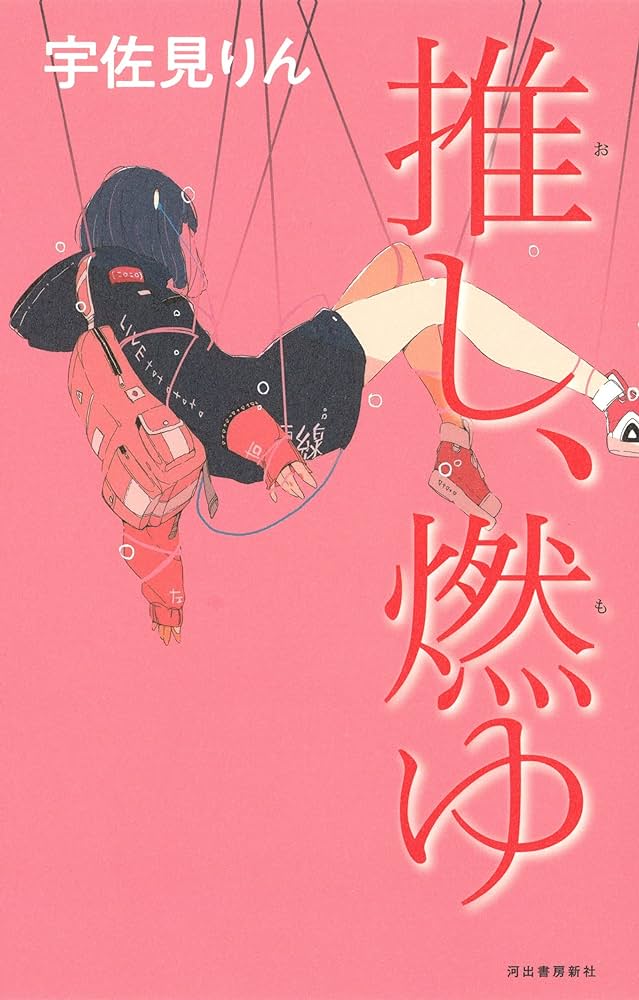

including the Japanese cover bc it rips so hard
Usami's second novel is a complete stunner. A wholly felt dive into a high-school girl floundering, searching for meaning and for herself as her favorite idol gets embroiled in media controversy, this anxious nightmare is told through beautiful stream-of-conscious writing that hits emotional realities of modern life better than almost anything else, crescendoing into an unforgettable ending that packs in every emotion you could ever feel all at once. You'd expect with the premise to lead to another boring "expose" on idol culture and fandom, but instead you get something so much more honest and complicated and empathetic than that. A modern classic.
Movie of the Week: Maple Leaf Viewing (dir. Tsunekichi Shibata, 1899)
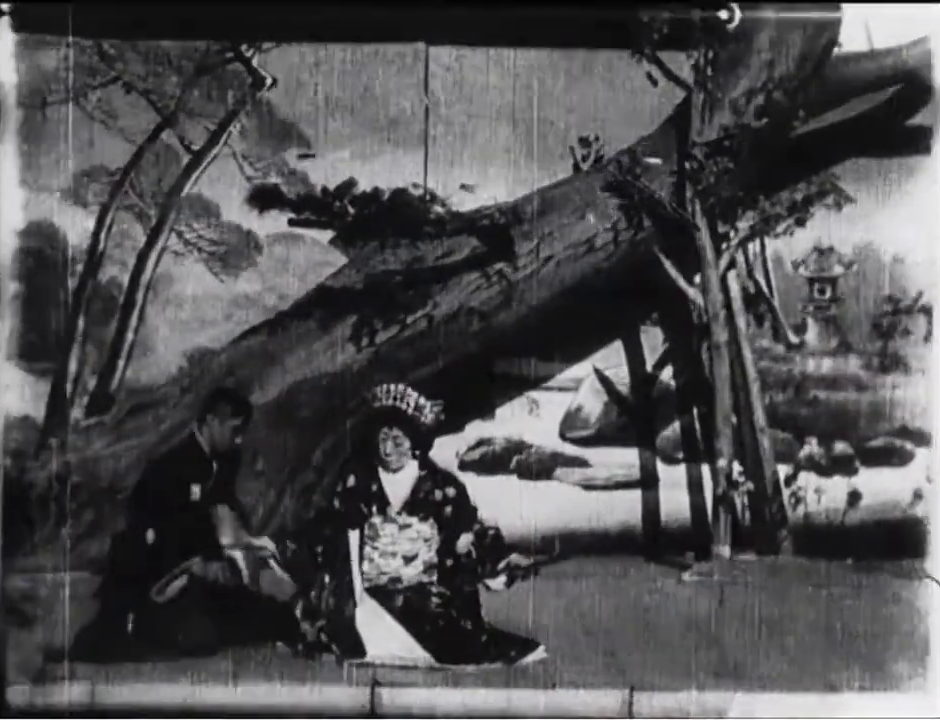
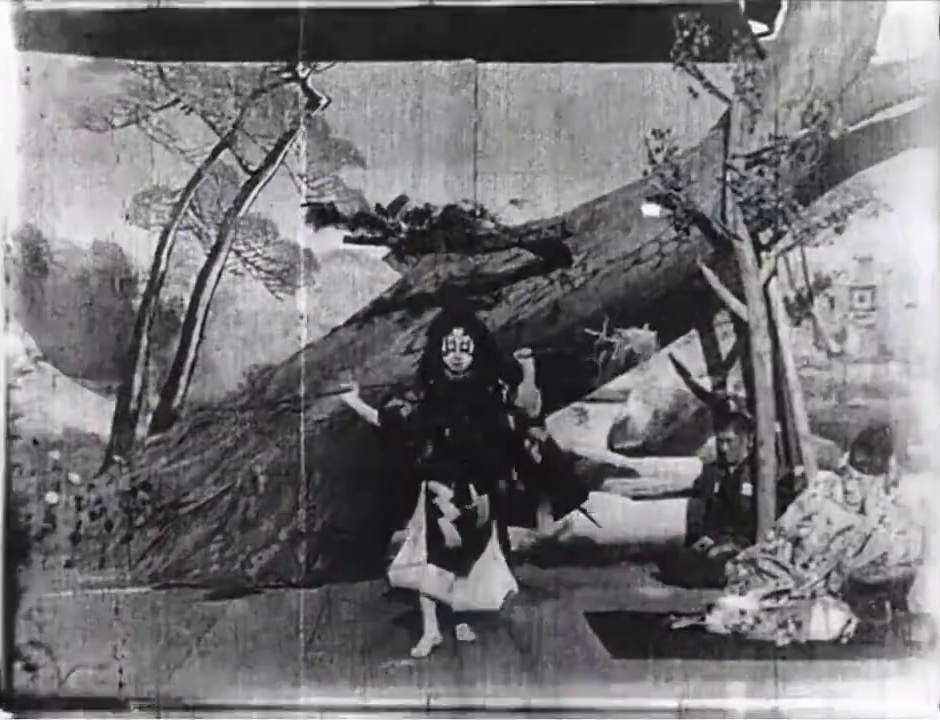
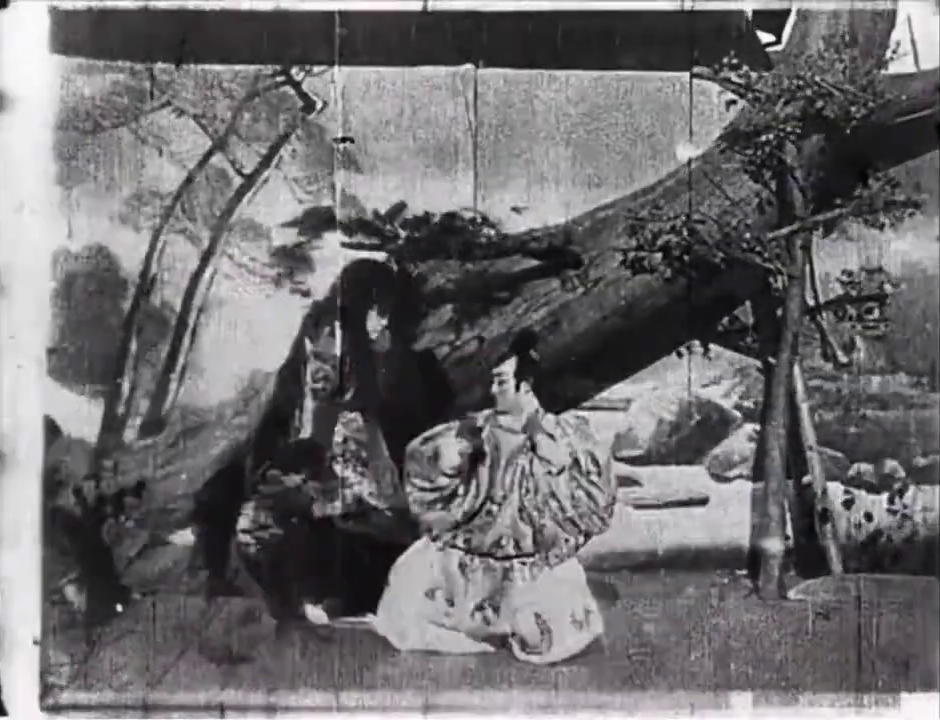
The oldest complete Japanese film we have (though being from 1899 it's only a few minutes long) depicting two legendary kabuki actors reenacting a scene from a play. Historically vital and also an immensely charming bit of celluloid to boot, especially today when the only way to watch it is via a scratched, faded, destroyed print. If you like the scratchy silent look (aka if you are me) this is peak. Filmed outside, it's partly famous for a moment where the wind makes actor Ichikawa Danjuro IX fumble a fan, and unable to do reshoots, they just left it in! Proof that movies were good from the very start.
Have thoughts about anything covered this week? Got a recommendation you’re dying to share? Want to tell me how handsome and cool I am? Leave a comment below!
oh, and here's an unimpeachable look at the punk nature of one of my favorite directors.



